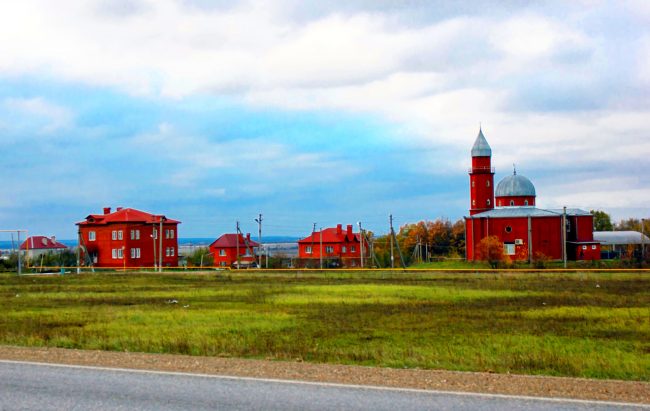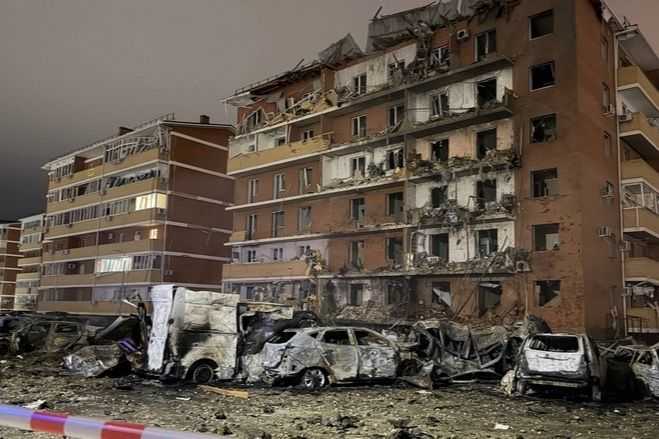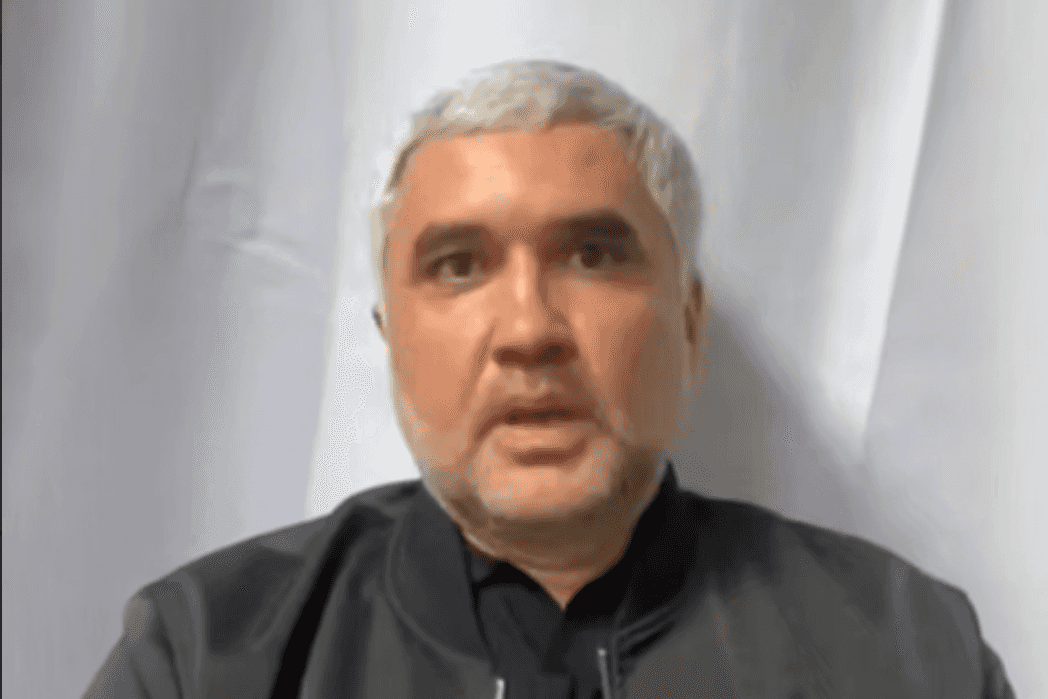

 Today marks Adygea’s 20th annual celebration of the Day of the Repatriate, honouring the Circassians who returned to their ancestral land after more than 150 years in exile. Many in Adygea say there is little reason to celebrate, however, as few are able to settle in the republic.
Today marks Adygea’s 20th annual celebration of the Day of the Repatriate, honouring the Circassians who returned to their ancestral land after more than 150 years in exile. Many in Adygea say there is little reason to celebrate, however, as few are able to settle in the republic.
Circassian Jordanian Fadi Is’haqat, who came to live in Adygea 19 years ago, is still fighting for the right to obtain Russian citizenship. He believes that it will happen only if diaspora Circassians are recognised as Russian compatriots.
‘Russian citizenship to Circassians from the diaspora is given on different grounds: some passed the exam for native Russian speakers, some married a Russian citizen, but no one has yet received a status of a compatriot’, Fadi told OC Media.
Fadi’s ancestors came to Jordan in the second half of the 19th century, in the aftermath of the Russian conquest of Circassia, once comprising most of the Northwest Caucasus. The vast majority of the population fell victim to war and ethnic cleansing, following which the former Circassian lands became gradually populated with Russian settlers and other ethnicities. Today, small pockets of indigenous Circassian populations exist in Russia’s Krasnodar Krai, Adygea, and Karachay–Cherkessia. Circassians constitute majority only in Kabardino-Balkaria.
Despite passing the exam for Russian native speakers, Fadi failed to obtain Russian citizenship, even after Adygean authorities asked him to renounce his Jordanian citizenship.
‘This process takes from a year and a half up to two years and is very expensive for me. I renounced my Jordanian citizenship and sent the documentation (which cost $1,000) to the Jordanian embassy [in Russia], but it wasn’t enough’, he told OC Media.
Repatriation: only for ethnic Russians
‘There is a definition [in Russian law] of who is a compatriot, and Circassians from abroad undoubtedly fall under this definition’, Adam Bogus, an Adygean MP and Circassian activist told OC Media. He said he had been explicitly told by the Russian leadership that Circassians aren’t considered Russian compatriots, but given ‘no further explanation’.
The 1999 law ‘On the state policy of the Russian Federation on compatriots abroad’, defines compatriots, among other things, as ‘persons and their descendants living outside the territory of the Russian Federation and, as a rule, peoples historically resident in the territory of the Russian Federation’. The law guarantees compatriots the right to obtain Russian citizenship in ‘a simplified manner’, and offers incentives for those wishing to migrate to Russia.
According to Bogus, diaspora Circassians can currently only settle in Russia under the general scheme for foreign citizens. Those who manage to do this are visited by Russian intelligence, who question them and ‘create problems in their workplaces’.
‘It is evident that the authorities do not welcome the return of Circassians to their homeland’, Bogus said.
In late 2012, several Circassian community organisations raised the issue with the Department of Interethnic Relations at Russia’s Ministry of Regional Development. Its director, Aleksandr Zhuravsky, responded that ‘the ancestors of modern Circassian Syrians lived in territories that, until their relocation to the Ottoman Empire in 1864, were not a part of the Russian state, hence […] they can’t be considered natives of or immigrants from the Russian state’.
Aslan Beshto, head of Circassian community organisation Kabardian Congress based in Kabardino-Balkaria, told OC Media that the republics with significant Circassian populations — Adygea, Karachay–Cherkessia, and Kabardino-Balkaria — celebrate their ‘voluntary entry’ into Russia every five years, which should be enough proof that Circassians are Russian compatriots and the resettlement programme should apply to them. ‘That’s not the case’, Beshto said.
[Read on OC Media: ‘The Great Day of Unity’ vs ‘the tragedy of the genocide’: Kabardino-Balkaria’s contradictory public holidays]
Russian Prime Minister Dmitry Medvedev announced on 7 July that Karachay–Cherkessia and Chechnya have been included in the resettlement programme for compatriots. Previously, only Stavropol Krai was included from the North Caucasus. In Karachay–Cherkessia, 375 people are expected to arrive before 2020.
According to Medvedev, ‘highly qualified specialists and workers, who will contribute to the strengthening of the economy’, will arrive under the programme. Circassian activists say there is little chance Circassians will benefit from it.
From Syria to Adygea
Nart Tuguz, 24, studies medicine in Moscow. He recently passed the Russian native speaker exam and earned Russian citizenship. He was born in Damascus. Six years ago, when he was 17, he and his family fled the war to Adygea.
‘Our family had long planned to move to Adygea — our historic homeland. We visited Adygea several times. I planned to finish secondary school in Syria and then to continue studying at a university in Russia. The war ruined our plans’, Nart told OC Media.
Since Nart didn’t speak Russian, he had to go back to the 10th grade.
‘My teachers and classmates helped me greatly. I never felt like a stranger in Adygea. My knowledge of Circassian definitely helped’, he said.
‘In the near future, my sister Diana also plans to pass the Russian language exam. My parents currently live in Sweden, where they work to financially support us. We hope to overcome all [our] difficulties and reunite soon’, Nart said.
Many Circassian Syrians find it difficult to make a living in Adygea. Janti Habak (Circassian surname: Shauazh) came to Adygea, like Nart, in 2012 from Marj al-Sultan, a suburb of Damascus populated by ethnic Circassians. Today, Janti studies at the Adygean State University. He told OC Media that he has a temporary residence permit, while his parents have permanent ones. The family received a private house in the Adygean village of Panakhes to live in temporarily.
‘There are social problems associated with the language and finding a job. We can’t find work and even if we did, the salary would be small. Documents are very expensive to prepare. For example, a certificate of proficiency in Russian costs ₽6,000 ($95), translation costs ₽2,000 ($32), there are also costs for notary services’, Janti told OC Media.
Janti says that in order to take a loan from bank or to buy a car in instalments, a Russian passport is necessary — a document he doesn’t have. Soon he’ll move to study in Adygea’s capital, Maykop, which he says will pose even more challenges.
‘How will I start everything from scratch and how will I buy a flat if I have to pay ₽11,000–₽12,000 ($175–$190) in rent? If, let’s say, my salary is ₽30,000 ($476), of which I will spend ₽12,000 ($190) on rent, ₽2,000 ($32) on utilities, and several more thousands for food, there will be nothing left’, Janti says.
Economic disincentives
Asker Sokht, the head of Adyghe Khase, a Circassian community organisation in Krasnodar Krai, told OC Media that Circassian Syrians have adapted well during their seven-year stay, working mainly in construction, services, education, and medicine.
‘Many received a higher education in universities. Some are working in their professions, some are looking for a job. Young people who acquired citizenship are drafted. There are those who are given a deferment to improve their Russian’, Sokht told OC Media.
According to him, only some Circassian Syrian refugees, who first arrived in Europe, have moved to Russia. He says that the difficult socio-economic situation, with a lack of stable or well-paid jobs and a lack of housing, prevents them from settling.
‘It’s certainly difficult for them. It must take time for them to get back on their feet. Now, Circassians from Syria rather come to visit’, Sokht said.
Migration quotas
According to Zaurbiy Chundyshko, the head of the Maykop branch of Circassian group Adyghe Khase, migration quotas are another obstacle to the settlement of diaspora Circassians in Adygea. He said that this year’s quota is for no more than 600 migrants, but it’s unknown how many places are allocated for Circassians.
‘During the peak of the Circassian Syrians’ arrival to Adygea, they constituted about 35%–40% of the entire quota. Now, the number of Circassians who return to Adygea has been reduced to zero’, Chundyshko told OC Media.
Chundyshko says he doesn’t know any Circassian Syrians who recently moved to Adygea. He says he suspects there may have been an order from Russia’s Ministry of Foreign Affairs to no longer let in people from Syria.
OC Media has reached out to Russia’s MFA for comment on the issue.
2,000 in 20 years
The 1st of August 2018 marks twenty years since a group of ethnic Circassians from Kosovo, fleeing the war there, arrived in Adygea. The families moved to the specially-built village of Mafekhabl in the suburbs of Maykop. There are currently over 50 families living in the village, working in state institutions, the police, education, and medicine. Circassian repatriates also live in a number of other villages in Adygea.
According to data provided to OC Media by Adygea’s Committee on Ethnic Affairs, Relations with Compatriots, and Media, there are about 2,000 diaspora Circassians in Adygea, who came from Turkey, Syria, Jordan, and Israel.
Of the 452,000 people living in Adygea, only 24% are ethnic Circassians.









